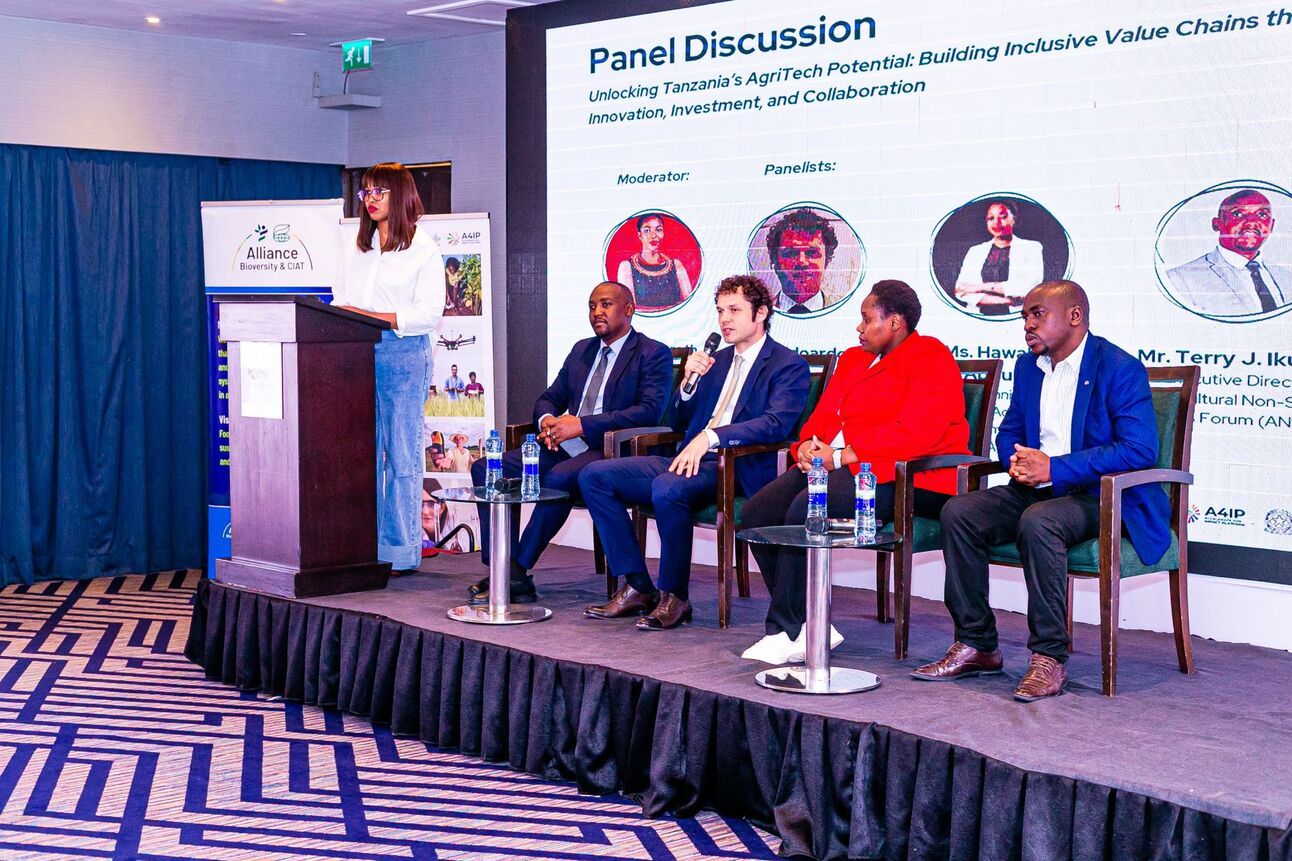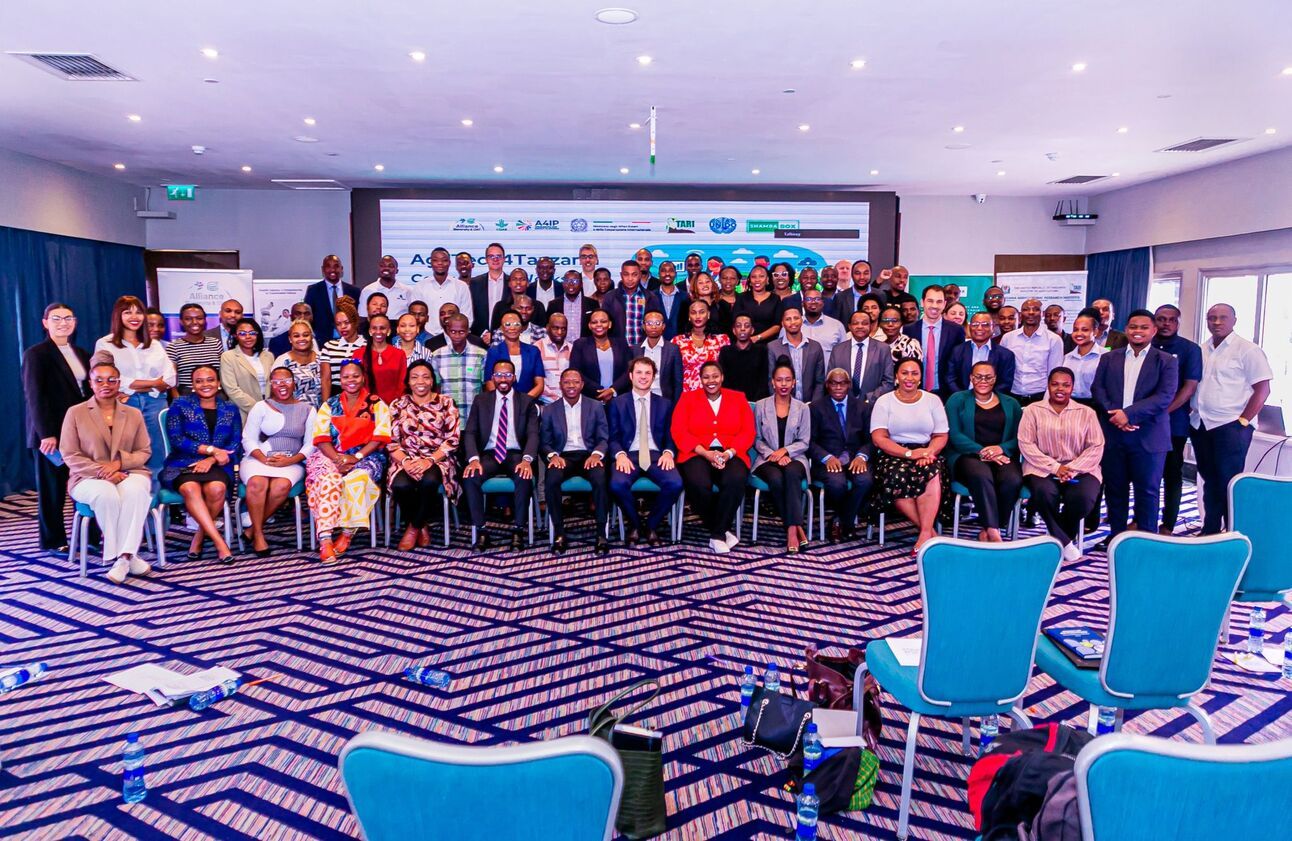- 🌍 Build Africa
- Posts
- Building Inclusive AgriTech in Tanzania
Building Inclusive AgriTech in Tanzania
AgriTech4Tanzania Consultation Workshop

Welcome to Build Africa! 👋🏿
Your startup journey starts here.
Beginnings are hard. Launching and scaling a startup is even harder. That overwhelming feeling when you face the unknown - the ideas buzzing in your head, the fear, the excitement…I know it well. That’s why I’m launching this space.
If you haven't subscribed, join thousands of folks curious about startups in Tanzania.
🧩 Where Tanzania Really Stands on AgriTech
On June 17, 2025, Dar es Salaam hosted the AgriTech4Tanzania Consultation Workshop a high-level convening of leaders across Tanzania’s agriculture and innovation landscape.
The event was convened by Shamba Box, in collaboration with CGIAR’s Accelerate for Impact Platform (A4IP), the Alliance of Bioversity International and CIAT, the United Nations Industrial Development Organization (UNIDO), and the Tanzania Agricultural Research Institute (TARI), with support from the Italian Ministry of Foreign Affairs and International Cooperation.
Kicking off the workshop, Dr. Mustafa Mkumbwa delivered a data-rich reality check on the current state of agricultural innovation in Tanzania.
The numbers spoke volumes.
Over 500,000 smallholder farmers are now connected to markets and inputs via digital platforms.
Drone irrigation pilots and smart sensors are being tested in regions like Morogoro. Productivity gains of 25–50% are showing up where tech meets the field.
But progress is uneven.
Mobile tech adoption still lags at the last mile. Most early-stage startups are underfunded. Policies remain fragmented, and women are still underrepresented in agritech leadership and access. Rural connectivity is rising, but it’s not yet inclusive.
Tanzania doesn’t lack innovation. It lacks coordination, inclusive infrastructure, and systems that support local solutions.
What does it take to move an agritech solution in Tanzania from a promising idea to a national impact story?

At the AgriTech4Tanzania Consultation Workshop, that question was put to the test in a dynamic panel discussion
The panelists Rose Funja (Altitude X), Eduardo Carco (UNIDO), Geophrey Tenganamba (Mazao Hub), and Terry Ikunda (ANSAF) offered a rare blend of field insight, institutional experience, and grassroots urgency.
Here’s what we learned.
📡 Data Is Infrastructure—Treat It That Way
“If we consider roads as public infrastructure, then data should be treated the same way,” said Rose Funja, founder of Altitude X.
Her message was both practical and bold: Tanzanian startups need a national Digital Public Infrastructure (DPI) to build, test, and scale innovation.
In a country where innovators pay out-of-pocket for farmer registries, land verification, and agro-climatic data, the cost of simply trying is too high. Rose called for shared data platforms, interoperable systems, and government-backed incentives for data contribution and access, especially for local innovators who are often left behind.
📉 From Ideation to Market: Finance Is Still the Missing Middle
Eduardo Carco of UNIDO outlined a painful truth that innovation doesn’t become impact until it reaches a market and the road between ideation and market entry in Tanzania is filled with missing bridges. Chief among them “financing”
But Carco’s analysis went beyond the usual “we need more capital” refrain. He pointed to a misalignment of perceptions. “Agriculture is perceived as risky by financiers,” he explained. “But that risk is often subjective. It’s not data-informed.”
He called for smart financing mechanisms like parametric insurance (which pays out based on satellite-monitored conditions) and more deliberate matchmaking between supply-side finance (banks) and demand-side innovators (startups and SMEs).
🤝 Mazao Hub’s Scaling Model: Clinics, Clinics, Clinics
Geophrey, co-founder of Mazao Hub, shared one of the most actionable blueprints of the session: how his startup scaled from a single agritech pilot to over 375 digital “agriclinics” across Tanzania.
Their success wasn’t rooted in software alone. It came from building localized service models, distributing risk, and co-owning operations with partners. “You can’t scale tech in Tanzania without local presence and shared ownership,” he emphasized.
But Geophrey also issued a challenge to ecosystem enablers. “We don’t just need grants, we need practical exposure. Most startups aren’t visible to investors. We need to get them in the room.”
🌾 Farmers Are Not End Users—They’re Co-Creators
Terry Ikunda from the Agricultural Non-State Actors Forum (ANSAF) delivered a firm message: “Farmers are not beneficiaries of innovation. They are co-creators. If you don’t start from their needs, your solution will not scale.”
He highlighted the vital role of farmer associations and civil society organizations in surfacing real problems from post-harvest loss to pest control and translating them into challenges that innovators can solve. His example? A sensor-based system to chase away birds in rice paddies an issue that rarely makes it into white papers but has massive consequences for yields.
Ikunda’s bottom line: “Innovation that isn’t rooted in real farmer pain points is charity in disguise.”
🎯 Final Message: Scale Is a System, Not a Solo Act

If there was one unifying idea from the AgriTech4Tanzania Consultation Workshop, it was this:
No single actor, government, startup, funder, or researcher can drive transformation alone. It will take:
Digital Public Infrastructure to level the playing field
Blended finance and local banks that understand startups
Civil society and farmer orgs co-designing innovation
Policy that enables experimentation
Visibility for real Tanzanian ventures, not just imported decks
At Build Africa, we believe innovation should be locally rooted, policy-aligned, and impact-driven. This panel reminded us that the blueprint is emerging. Now, we need to build it—together.
Let's Connect! Find me on:
🐦 Find me on Twitter
💬 Chat with me on Linkedin
💌 Reply to this email